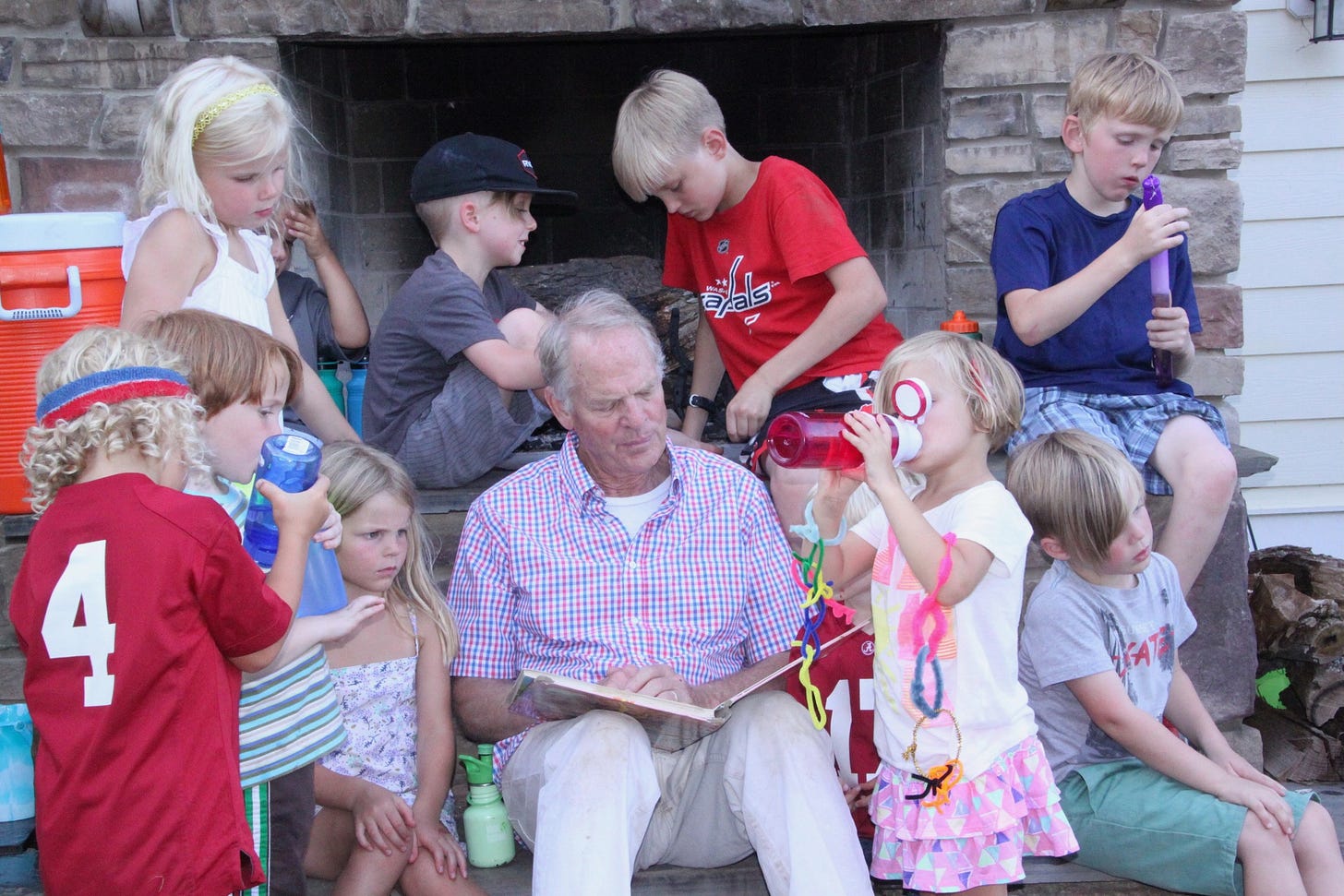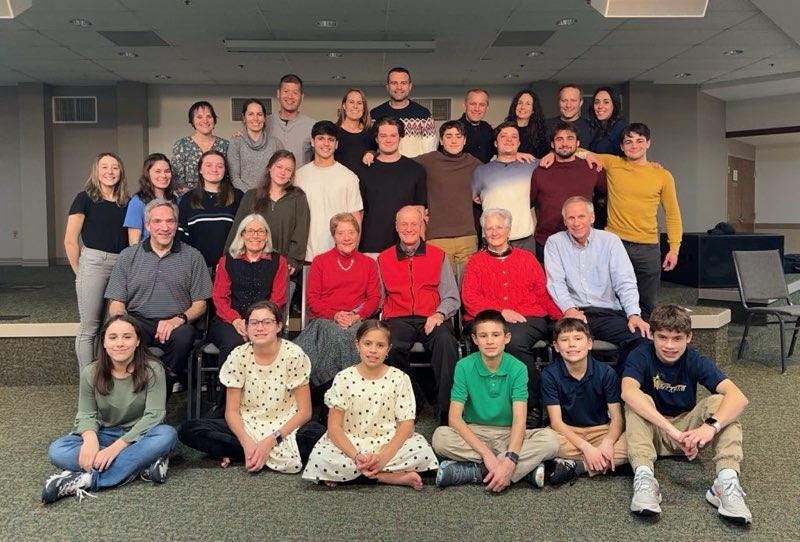For many of us when we think of planning an event, we typically begin with the program. What should the event entail? The schedule? The specifics-food, games, etc. Who will come? It’s easy to plan an event just to have a good event.
However, when planning a family gathering, we need to ask, While the event might have good results, will they last? What if, we carefully considered the goals of our event and the needs of the people attending? Would this enable a fun event to have more of a long-term impact?
A new way to plan.
Wise older mentors of ours, Chuck and Cathy Miller, taught us a different paradigm.
They taught us that a program should flow from the needs and goals of the people coming.
So, in planning a camp we wrote down all the names of people coming. Next, we wrote down their needs and our goals for our time together and only then did we begin to design the daily program for the camp. We thought in terms of emotional, social, physical, spiritual, and mental needs.
For example: an emotional need for Sloan (age 4) is that since it’s her first year at camp she may feel shy and need to be pulled in. A goal would be that she learns the names of all her cousins. A program would be that I post a large photo on the kitchen cabinet with the names of all our grands, her cousins.
Davey (age 10) and the youngest of 5 needs to have good cousin time apart from his siblings so program- we put him on teams without siblings and provide special opportunities for him and his cousin Jack to be together.
A social need for Linden (age 6) is that she “bond” with her cousin Grey who is the same age but lives in a different state. Program: We have them sleep together on sleeping bags in our closet!
This way of planning may sound cumbersome, and it is in the beginning but in the long run it is a huge help in designing a program that meets real needs and has a lasting impact.
John and I have used this paradigm not only in planning family events but in planning ministry events throughout our whole lives.
What others have done.
Every family and every situation is different. There are multiple types of reunions.
There is not one way to do things and there is no perfect family. Families are messy. Behind every Facebook or Instagram photo is a person who is selfish, who fails, who is need of forgiveness, and who wants to be loved.
We all long for close knit families and extended families. Our family is not like yours. Ours is messy too. The way we plan a reunion will be different from what you do.
Here are 3 examples of different types of reunions from some of our friends:
Sarah
Sarah has a large extended family, who hadn't had a family reunion in a long time. Despite the distance of miles, Sarah had a vision to bring these different relatives together. Because many of her family had served in the military Sarah decided to incorporate a military theme into a family reunion. Each person received an invitation to “Mission Impossible: Band of Cousins.” On the cover was a WWII photo of her grandfather with his two brothers on a tank. Many arrived dressed in camo and the activities had different battle themes. Sarah put together a family military booklet filled with short stories and pictures. Activities included an obstacle course, stories from military and family historians, games, water gun fights and of course medals. At the end of camp, character awards were given out to the campers. The message: Character is what matters most.
Peggy
Peggy is single but she has a big family vision. With her siblings’ support, she determined to organize a family reunion at a neglected house they had inherited. Her vision was to bring the family together around something constructive. Sawing and chopping trees, hauling brush to burn piles, sharing one shower with 12 people and cooking meals served to cement relationships. Bonfires, marshmallows, homemade ice cream, card games and charades made this a special gathering. Peggy relates, “I love the combination of people and purpose.”
John
John comes from a big family. To build bonds, his parents host a reunion every summer at their home. If a family misses one summer, they know they’ll have next summer to look forward to.
Each year the cousins create dramas and perform them with costumes and props gathered from around the house or made with markers. Much of the inspiration for the performances comes from late night conversations amongst the kids. These productions have developed leadership skills, lessened the fear of speaking before an audience, encouraged storytelling, and writing and co-operation among siblings. The cousins do it all and the parents get to sit back, laugh, and be entertained!
4 things to remember about Families:
No two families are alike and needs change for each family year to year. However, there are four ingredients that are necessary for all in building a close-knit family.
Let Grace Rule.
Cousins may not have much in common or may even dislike each other. Decide now to set aside your assumptions and determine to let grace rule. This may involve choosing kind words. (Proverbs 16:24) or remailing silent when offended (Proverbs 17:28). Solomon said it this way, “A person’s wisdom yields patience; it is to one’s glory to overlook an offense…Gracious words are a honeycomb, sweet to the soul and healing to the bones.” (Proverbs 19:11,16:24)
Be quick to forgive.
I can’t tell you how many times I’ve had to go to my husband and to my children (and friends too) and say, “I need to ask you to forgive me for____. Will you please forgive me?”
I can’t remember a single time I’ve felt like doing this. I’d much rather chime in with, “But if you had or hadn’t…” We go to one another to ask for forgiveness not out of feelings but out of obedience. God has called us to do this. Feelings and trust take time to be healed and restored, often a long time. However, asking for forgiveness opens the door to allow healing to take place and trust to begin to be rebuilt. I believe that forgiveness is the most important ingredient in the family. God willing, we are raising future husbands and wives. How will they know how to forgive their own spouses and family members if we don’t practice this in our homes?
It's helpful to ask ourselves, “Is there a family member that I have offended?” Determine the most appropriate way to ask forgiveness and initiate this.
Assume the best.
You’d like to host a Cousin Camp or a family gathering. However, there’s one family with whom you aren’t close or with whom there are unresolved issues. Should you invite them? Yes.
We have to be intentional in assuming the best. This person may be struggling with something that has nothing to do with you. Don’t take it personally and don’t assume the worst. Assume they need your love, and that this opportunity may bring healing to their wounds. Extend grace. If appropriate, have other family members reach out to them.
I know of two adult siblings who were at odds with one another. Both had children. A family gathering wasn’t particularly appealing to them, but because they wanted their children to know each other they came. As these cousins developed friendships, the adults began to experience healing in their relationships. Sometimes it takes the next generation to lead the elders.
Avoid the “comparison trap.”
One of the biggest challenges for us as we try to raise our families and to plan an even, is that we look at that other family which seems so perfect. Of course, the word seems is key. There is no perfect family. No one has it all together. Looking at another family can either inspire you or discourage you. We have to look at that family not through lenses of jealousy and envy but with eyes of grace and thanksgiving. Choose to learn from other families. Adopt what they have done that might work for your family. Leave out what does not relate to your own unique family.
In planning a family gathering we must keep a long-term vision. We are building for the future, and this is but one tiny small step. Things will not go as planned. Surprises will develop. Again and again, we must fall back on the fact that we are first of all, God’s family. He chose this particular one for us. We rely on Paul’s prayer in Philippians 1:6:
“I am confident of this, that HE who began a good work in you will carry it on to completion until the day of Christ Jesus.”
He is at work in our families even when we can’t see it. He is not in a hurry. And He is working while we are waiting.
In case you missed it, be sure to check out last week’s blog about How to Foster and Grow Deeper Relationships with Adult Children and Older Grandkids:
Purchase the Cousin Camp book today and save 30%!
Thank you for following along as we talked about planning and hosting a Cousin Camp! We hope that you feel inspired! You can also download my Camp at Home planning guide, a short guide packed with 100 ideas on how to have a camp at home!







Such creative ideas, but also realism for all imperfect families. I especially loved your last four principles!